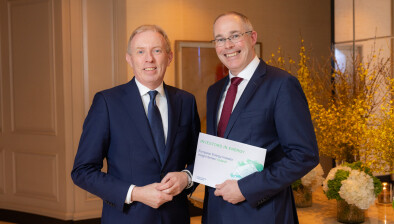Jude Murray BL: A practitioner’s guide to the Assisted Decision-Making (Capacity) Act 2015

Jude Murray BL
Jude Murray BL thoroughly delves into Ireland’s landmark new capacity legislation ahead of its commencement and summarises the key sections.
The Assisted Decision-Making (Capacity) Act 2015 is due to fully commence in 2022. It is a very significant new piece of capacity legislation that addresses a long-outdated area of law – wardship.
The three main purposes of the Act are to (i) improve decision supports for people lacking in capacity, (ii) broaden the scope of Enduring Powers of Attorney to include healthcare decisions, and (iii) introduce Advance Healthcare Directives into Irish law. It is the first piece of Irish legislation to use the phrase “will and preferences”, and the phrase “best interests” is deliberately omitted.1
This article gives an overview of the Act, summarises key sections of particular interest to legal practitioners, and explains why the Act is relevant to us all.
The Act
The Act is made up of 12 parts and 130 pages. It establishes the Decision Support Service (DSS) and covers three distinct areas: Decision-Making for those lacking in capacity, and Enduring Powers of Attorney and Advance Healthcare Directives for those who have capacity.
The end of wardship?
On its face, the Act will abolish wardship, which derives jurisdiction from the Lunacy Regulation (Ireland) Act 1871 and the Marriage of Lunatics Act 1811. The 1811 Act was repealed in February 2021 and, when Part 6 of the 2015 Act commences, the 1871 Act will be repealed.23 To date, wardship has been under the sole care of the High Court. Section 4 of the Act largely moves this jurisdiction to the Circuit Court, giving the Circuit Court “exclusive jurisdiction…except for certain matters reserved for the High Court”.4 In a Dáil Debate about the Act, the Director of the DSS explained that “the idea is that [the Circuit Court] is more regional, accessible and less costly”.5
Section 53 defines “wardship court” as being “the High Court or Circuit Court exercising its jurisdiction…in relation to a ward…[meaning] that court which made the order by virtue of which the ward is a ward”. As stated, to date, wardship has been under the sole jurisdiction of the High Court, so why does the Circuit Court appear in the definition of “wardship court” if wardship is to end? The presence of the Circuit Court in the definition becomes clearer when read in light of the Assisted Decision-Making (Capacity) (Amendment) Bill, which was passed in November 2021. That Bill seeks to insert section 55A, which will provide for the Circuit Court carrying out capacity reviews of former wards who remain under the care of the new Act. “Wardship court” therefore applies to current wards, all of whom will become former wards under the Act, but who may still require support and periodic review by the Court. There will be no new wards.
The Act moves away from calling a person a “ward”. In the Act, the new name for someone lacking capacity is a “Relevant Person”. For Enduring Powers of Attorney, the relevant person is known as a “Donor”, and for Advance Healthcare Directives they are referred to in the Act as a “Directive-Maker”.
Three new roles
Depending on a Relevant Person’s level of capacity, the Act creates three new roles: a Decision-Making Assistant, a Co-Decision-Maker, or a Decision-Making Representative. Respectively, they may be appointed to assist a Relevant Person to make a decision, to make a decision with the Relevant Person, or to make a decision on behalf of the Relevant Person. It should be noted that, although the Act is titled “Assisted Decision-Making”, decisions will not always be “assisted”, as it will be possible for the Court or a Decision-Making Representative to unilaterally make decisions regarding a Relevant Person’s personal welfare and or their property and affairs. The UN Committee on the Rights of Persons with Disabilities has interpreted Article 12 of the Convention as prohibiting this kind of unilateral decision making, which the Committee called “substitute decision-making”. When ratifying the Convention, Ireland included a declaration and reservation about Article 12, stating “to the extent Article 12 may be interpreted as requiring the elimination of all substitute decision making arrangements, Ireland reserves the right to permit such arrangements in appropriate circumstances and subject to appropriate and effective safeguards”.6
Decision-Making Assistant
Part 3 of the Act is titled “Assisted Decision-Making” and it governs the role of a Decision-Making Assistant. He or she is appointed by the Relevant Person, who in this context is known as the “Appointer”, and there is a Decision-Making Assistance Agreement between them. A Decision-Making Assistant must be over 18 years of age and may assist in making one or more decisions regarding the Relevant Person’s welfare or property and affairs, or both. Section 10(3) of the Act states that an agreement may be revoked at any time by either the Appointer or Decision-Making Assistant, or it may be varied subject to their mutual agreement. The job of a Decision-Making Assistant is to advise and assist the Appointer to make a decision but section 14(2) clearly states that “a Decision-Making Assistant shall not make a decision on behalf of the Appointer”. Section 14(3) further clarifies that “a relevant decision taken by the Appointer with the assistance of the Decision-Making Assistant is deemed to be taken by the Appointer for all purposes”.
Complaints can be made regarding Decision-Making Assistants pursuant to section 15 of the Act (for example, if believed to be acting outside of scope, unable to perform functions, fraud, coercion, undue pressure et cetera) and the Director of the Decision Support Service on his or her own initiative investigate a Decision-Making Assistant, pursuant to section 15(4). There is no Register for Decision-Making Assistance Agreements and there is no requirement for Decision-Making Assistants to submit reports to the Director.
The nature of the Decision-Making Assistant role means that decision making will rest with the Appointer. The ability of the Director of the DSS to proactively investigate Decision-Making Assistants is a positive safeguard that will help to protect Appointers.
Co-Decision-Maker
Part 4 of the Act is titled “Co-Decision-Making” and governs the role of Co-Decision-Maker. He or she is appointed by the Relevant Person, known as the “Appointer”, and there is a Co-Decision-Making Agreement between them. A Co-Decision-Maker must be over 18 and jointly makes decisions with the appointer on the Appointer’s personal welfare or property and affairs or both. As per section 17(8), an Appointer may appoint multiple Co-Decision-Makers but there must be a separate Co-Decision-Making Agreement per Co-Decision-Maker, and a specific decision matter can only feature in one agreement. Section 19(2) states that a Co-Decision-Maker “shall be entitled to be reimbursed out of the assets of the Appointer in respect of fair and reasonable costs and expenses”.
Co-Decision-Making Agreements must be registered with the Director of the Decision Support Service and placed on its Register of the same. Section 21 states that an application to register a Co-Decision-Making Agreement must be made no later than five weeks from the date when the agreement was signed by the Appointer and Co-Decision-Maker (the “Applicants”). Section 22 outlines criteria that the Director will ensure are met when reviewing an application. On review, the Director has three options, to (i) register the agreement or (ii) notify the applicants of unfulfilled criteria, affording them time to fulfil the criteria, or (iii) decide not to register an agreement. Section 22(4) states that a refusal can be appealed to Court by one or both applicants within twenty-one days of the refusal. A Court on appeal may require the Director to register the agreement, may affirm the decision of the Director, or might make such other order as it deems appropriate.
Section 19(1)(e) describes a function (not a “duty or obligation”) of a Co-Decision-Maker as being to “make a relevant decision jointly with the appointer” and as per section 19(1)(f) to “make reasonable efforts to ensure that a relevant decision is implemented as far as practicable”. However, the Act is silent as to what steps can be taken if Co-Decision-Makers cannot reach joint agreement. During the Dáil Debate, the Director said, “we [the DSS] will have a certain role in addressing that and the Court may have to address competing positions of different family members as to whether they should step into a formalised role or not”.
Decision-Making Representatives
Pursuant to section 38(2)(b), the Court can make an Order to appoint a suitable person over 18 to be a Decision-Making Representative for the purposes of making one or more than one decision specified in the Order regarding the Relevant Person’s personal welfare or property and affairs or both. This is a decision-making representation order.
Section 42 specifies that a Decision-Making Representative “shall be entitled to be reimbursed out of the assets of the Relevant Person” for “fair and reasonable expenses”. Furthermore, section 42(2) states that a Decision-Making Representative shall also be entitled to “reasonable remuneration” for the performance of his/her functions to be “paid from the assets of the Relevant Person”.
The Decision-Making Representative could be an applicant before the Court, such as a next-of-kin, or the Court can ask the Director of the DSS to nominate two Decision-Making Representatives from the DSS’s panel of the same, and the Court will choose one.
What will happen to wards of court?
Under the new Act, all existing wards will be released from wardship and will become known as “former wards”. This will be done via a three-step process of review, declaration and order:
Review
Sections 54 and 55 relate to capacity reviews and declarations as to existing wards of court. Under section 54, practitioners will be entitled to request a review of a ward immediately after Part 6 of the Act fully commences. Commenting on how circa 1,200 people have been taken into wardship since the Act was enacted in 2015 (but not yet fully commenced), the Director of the DSS referred in the Dáil Debate to the power of a section 54(1) application: “there will be immediate provision for the review of all current adult wards of court. They are entitled to bring themselves up the list if they want.”. Otherwise, under section 54(2), the Act requires that all wards be reviewed within three years following the commencement of Part 6.
Declaration
On carrying out a capacity review, the Court will make a declaration under section 55 as to capacity for wards. The Court can make one of three declarations, that the ward (i) does not lack capacity, (ii) lacks capacity unless a Co-Decision-Maker is appointed, or (iii) lacks capacity even if a Co-Decision-Maker is appointed.
Order
Section 55(2) details the Orders that a Court can make having made a declaration under section 55(1). It can (i) order the ward to be immediately discharged and all property returned to him or her, or (ii) order the ward to be discharged and property returned once a Co-Decision-Making agreement has been registered, or (iii) make a decision or decision(s) for the ward via a decision-making order, and or appoint a Decision-Making Representative via a decision-making representation order.
Key sections
As well as sections 54 and 55 (explained above), key sections for legal practitioners to be aware of are sections 35, 37, 38, 48, 49 and 50.
Section 35 confirms that the Act only applies to Relevant Persons over the age of 18. The Act does not apply to minors.
Under section 37, the Court can make one of two possible declarations as to capacity, that the Relevant Person lacks capacity (i) unless a Co-Decision-Maker is appointed or (ii) even if a Co-Decision-Maker is appointed.
Section 38 applies if there is no Co-Decision-Maker available or a co-decision-making agreement has not been registered. Under section 38, the Court can make a decision for the Relevant Person, in the form of a decision-making order.
Under section 48, practitioners will be able to apply for interim orders in relation to a Relevant Person where an application has been brought, such as a request for a capacity review, but has not yet been determined.
Under section 49, it will be possible to ask the Court to review a capacity declaration that it has made under section 37. Section 37 capacity declarations will be reviewed every twelve months, or every three years if the Relevant Person is unlikely to regain capacity, but a section 49 application can request a review at any time.
Section 50 empowers the Court to order expert reports, such as medical reports, cognitive ability assessments or financial reports, to assist the Court in reaching a decision.
Enduring Powers of Attorney
It is already possible to create an Enduring Power of Attorney under the Powers of Attorney Act 1996, and these relate solely to a donor’s property and affairs.7 Part 7 of the 2015 Act broadens the scope of Enduring Powers of Attorney to include healthcare decisions, and the Act brings Enduring Powers of Attorney under the supervision of the DSS. The enduring power is created via a written instrument which is registered by the Attorney with the Director of the Decision Support Service. The power only enters into force when (i) the donor lacks capacity in relation to one or more than one relevant decision and (ii) the instrument has been registered. It should be noted that an Advance Healthcare Directives (see below) will trump an Enduring Power of Attorney; section 62(5) states that an Enduring Power of Attorney cannot cover decisions regarding refusal of life-sustaining treatment or a decision “which is the subject of an Advance Healthcare Directive”. Section 62(6) states that, if an Enduring Power of Attorney contains such a decision, it becomes null and void.
Advance Healthcare Directives
Part 8 of the Act is entitled Advance Healthcare Directives (AHDs). As the name suggests, they relate only to healthcare related decisions. The “directive-maker” is the person who makes the directive when they have capacity regarding their wishes on future healthcare treatment, which is defined in section 82 as “an intervention that is or may be done for a therapeutic, preventative, diagnostic, palliative or other purpose related to the physical or mental health of the person, and includes life-sustaining treatment”. A directive must be made in writing and “writing” includes “voice and video recording and speech recognition technologies”. Section 83 explains the two-pronged purpose of AHDs as being to (i) enable people to be treated according to their “will and preferences” and (ii) provide healthcare professionals with information on the person’s “will and preferences”.
Section 84 states that anyone over 18 with capacity can make an AHD. Such a Directive will only take effect when the directive-maker lacks capacity. It must clearly define treatment to be refused and the circumstances in which such treatment is to be refused. Section 85(3) states that an AHD is not applicable to life-sustaining treatment unless this is explicitly stated by the directive-maker in the AHD, for example with the wording “even if his or her life is at risk”. Section 85(4) states that an AHD does not apply to basic care, which is defined as warmth, shelter, oral nutrition and hydration, and hygiene. Basic care does not include artificial nutrition or hydration; an AHD can state that artificial nutrition or hydration are not to be given.
Section 86(2) excuses healthcare professionals from any civil or criminal liability whether or not they comply with AHDs. Section 86(2)(a) states that they cannot be liable for complying with an AHD provided they had “reasonable grounds to believe, and did believe, that the AHD was valid and applicable”. Conversely, Section 82(2)(b) states that they cannot be liable for not complying with an AHD provided they believed that the AHD was not valid or applicable.
Decision Support Service
The Director’s functions outlined in section 95 include that he or she will provide information to Decision-Making Assistants, Co-Decision-Makers, Decision-Making Representatives, Designated Healthcare Representatives and Attorneys in relation to the performance of their functions. Section 95(1)(e) states that the Director will supervise compliance by Decision-Making Assistants, Co-Decision-Makers, Decision-Making Representatives and Attorneys.
Under section 96, the Director may investigate “either on his or her own initiative or in response to a complaint made to the Director by any person” “a Decision-Making Assistant, Co-Decision-Maker, Decision-Making Representative, Designated Healthcare Representative or Attorney”. Section 96(2) bestows power to the Director to summon witnesses to attend before him or her, examine witnesses on oath, require any such witness to produce any document in their control. Those who fail to comply “shall be guilty of an offence” under section 96(7). Chapter 3 of Part 9 outlines the Director’s powers to appoint Special Visitors, General Visitors, Court Friends, and Panels. A Special Visitor may or may not be a medical practitioner and has “particular knowledge, expertise and experience as respects the capacity of persons”. A General Visitor is a suitably qualified person appointed to “assist the Director in performing his/her supervisory function”. Under section 100, the Director can appoint a Court Friend to assist and attend with a Relevant Person in Court and promote their interests.
Next-of-kin
Most members of the public do not understand that next-of-kin has no legal standing when it comes to capacity. An adult person’s next-of-kin cannot make decisions as to that person’s welfare or property just by virtue of being next-of-kin.8 The situation today is that, if a person loses capacity (for example, incurs an acquired brain injury), the Health Service Executive (HSE) could apply to have that person made a ward of court (“warded”). Two committees would then be appointed, one to look after the person and the other to look after the person’s property (which will often contain a compensation award). Under the new Act, it will be possible for a person to specify what decisions they would like made about their person and or property in the event of them losing capacity, via an Enduring Power of Attorney or/and an Advance Healthcare Directive. In the event that a person does not have an EPA or AHD, and they lose capacity, decision supports can be put in place. Depending on the severity of capacity loss and degree of support needed, a Decision-Making Assistant, Co-Decision-Maker, or Decision-Making Representative could be appointed. That person may be a next-of-kin, but not purely by virtue of being a next-of-kin. It would be done via a Court application to be made a Decision-Making Representative or by signing an agreement with the Appointer to be a Decision-Making Assistant or Co-Decision-Maker (and registering that agreement with the DSS). If the Relevant Person does not have anyone who could or would step into one of these roles, the Court can make a decision for the Relevant Person or choose a Decision-Making Representative from nominees nominated by the Director of the DSS.
Conclusion
The Assisted Decision-Making (Capacity) Act 2015 is a weighty piece of legislation set to modernise a whole area of law for a very vulnerable cohort. It places the person at the centre, with a move from “best interests” to “will and preferences”. It provides for a tiered approach moving from assisting to making decisions on a person’s behalf. The Decision Support Service will be key and has distinct functions set out in the Act. Advance Healthcare Directives are a major new development.
1 “Will and preferences” originated from Article 12 (“equal recognition before the law”) of the UN Convention on the Rights of Persons with Disabilities. The Act also gives effect to the UN Convention on the International Protection of Adults.
2 S.I. No. 24/2021 - Assisted Decision-Making (Capacity) Act 2015 (Section 7(1)) (Commencement) Order 2021 – repealed the Marriage of Lunatics Act 1811.
3 Section 56(1) confirms that the repeal of the 1871 Act will not affect the validity of any wardship order that was priorly in force.
4 Section 4(3): examples of when the High Court has jurisdiction under the Act include decisions relating to living organ donation by a person lacking capacity, withdrawal of life-sustaining treatment, and non-therapeutic sterilisation of persons who lack capacity.
5 Joint Committee on Disability Matters Dáil debate, 20th May 2021.
6 Ireland is a dualist State; Article 29.6 of the Constitution states that international agreements have the force of law to the extent determined by the Oireachtas.
7 “Affairs” is defined by the Powers of Attorney 1996 Act as “business or financial affairs of the donor”.
8 The only Irish legislation where the term “next-of-kin” appears is the Succession Act of 1965, which provides for intestate inheritance.










